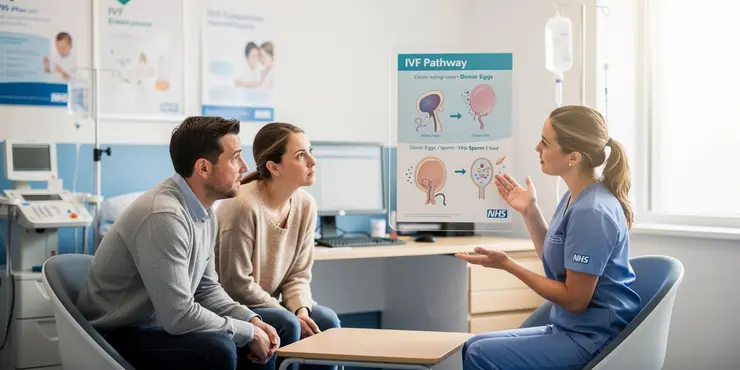
Find Help
More Items From Ergsy search
-
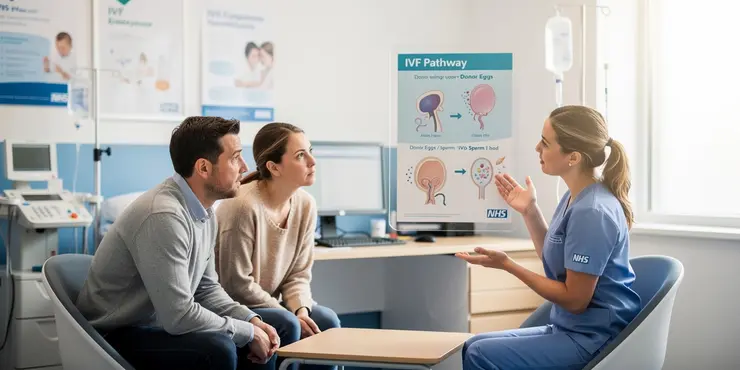
Can IVF be done with donor eggs or sperm?
Relevance: 100%
-
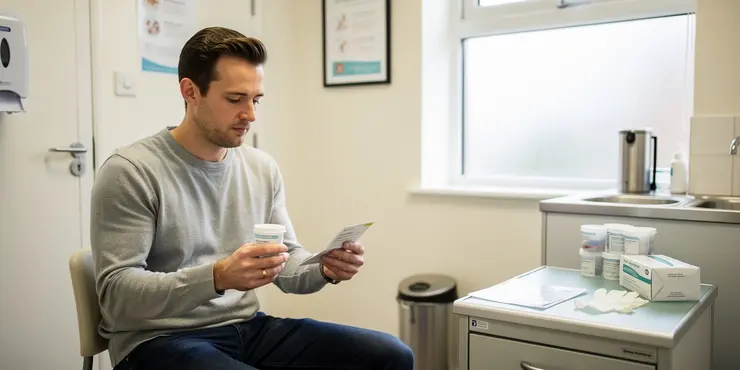
How is the sperm used in IVF?
Relevance: 63%
-
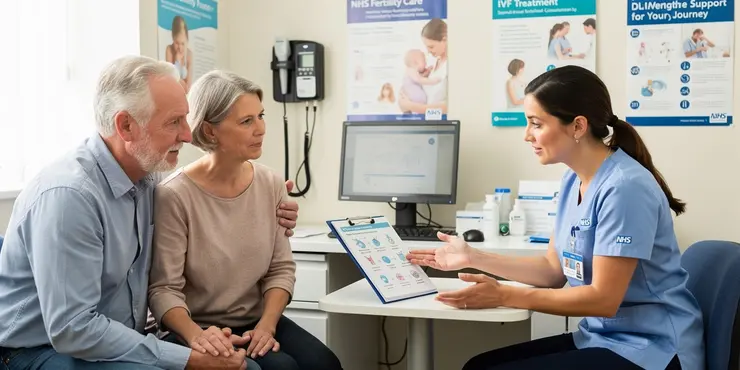
What is IVF and how does it work?
Relevance: 46%
-

Who might need IVF?
Relevance: 45%
-

What should I expect during IVF treatment?
Relevance: 43%
-

What is IVF?
Relevance: 41%
-
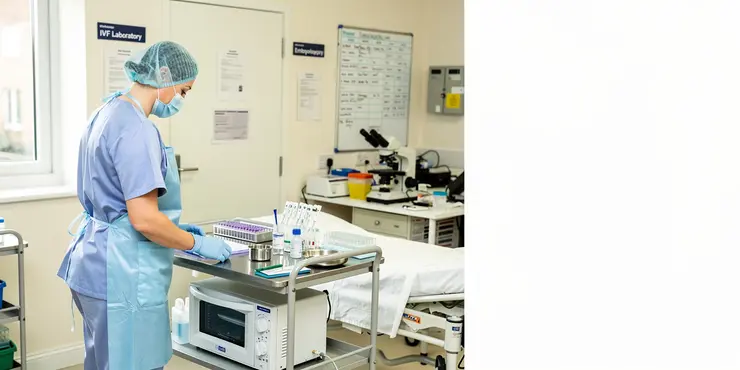
What is the role of the embryologist in IVF?
Relevance: 40%
-

Infertility - IVF Treatment and Patient Information
Relevance: 40%
-

What are the main steps in an IVF cycle?
Relevance: 40%
-

IVF Fertility Treatment from MumsNet
Relevance: 37%
-
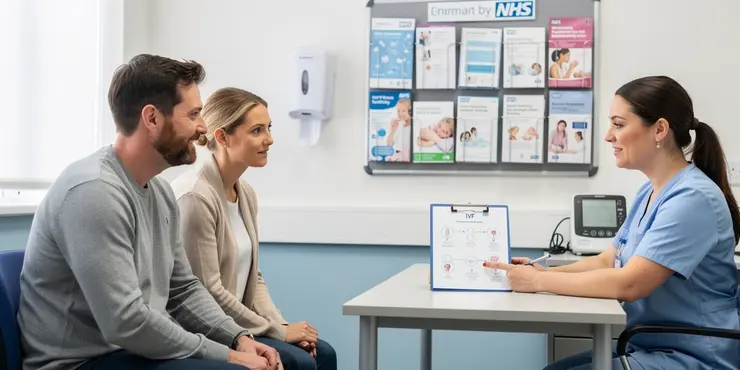
How does IVF work?
Relevance: 37%
-

Is IVF successful?
Relevance: 36%
-

Does IVF guarantee pregnancy?
Relevance: 35%
-

Are there risks associated with IVF?
Relevance: 34%
-

How long does an IVF cycle take?
Relevance: 33%
-
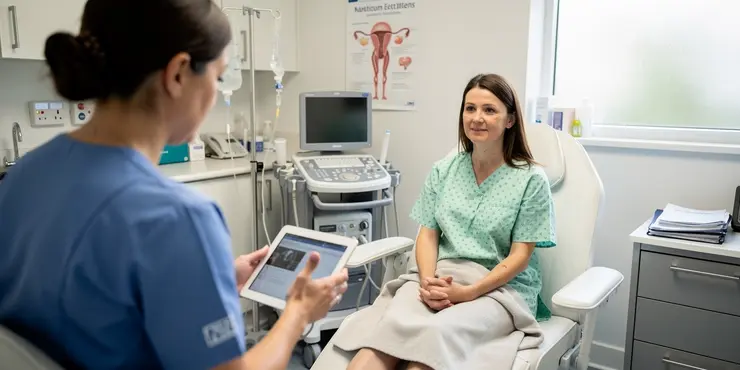
What is egg retrieval?
Relevance: 30%
-
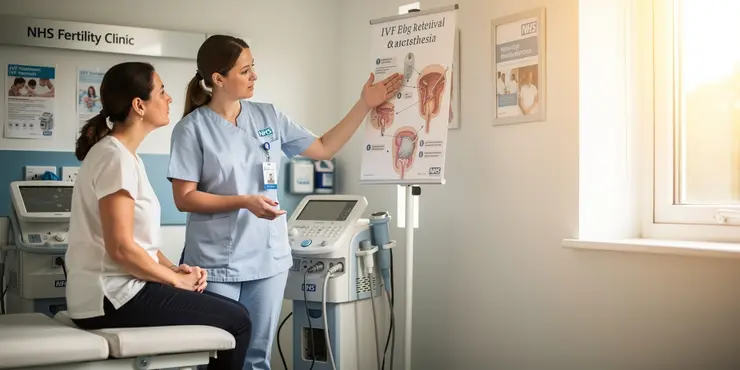
Does IVF require anesthesia?
Relevance: 30%
-

How do clinics determine if IVF is the right option?
Relevance: 28%
-

Can IVF be used for gender selection?
Relevance: 25%
-
Is there a universal blood donor type?
Relevance: 25%
-

How are embryos transferred during IVF?
Relevance: 25%
-

How many embryos are usually transferred in IVF?
Relevance: 21%
-

How to apply for NHS funding to treat infertility
Relevance: 20%
-

What decisions can an attorney make under a Property and Financial Affairs Lasting Power Attorney?
Relevance: 18%
-

What powers does an attorney have in a Health and Welfare LPA?
Relevance: 18%
-

What are the restrictions on attorneys under an LPA?
Relevance: 18%
-
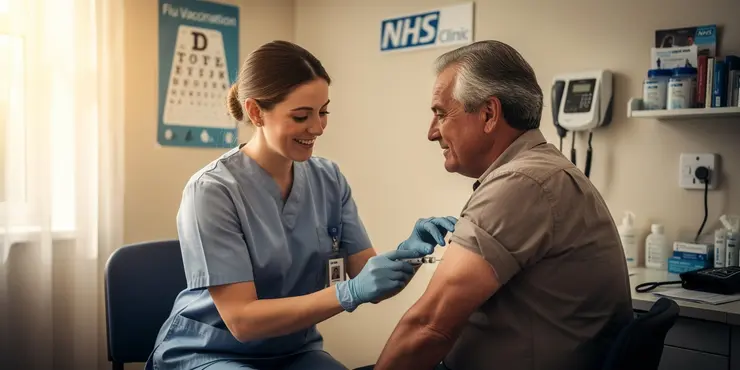
What if I have an egg allergy, can I still get the flu vaccine?
Relevance: 17%
-

When does a Lasting Power of Attorney (LPA) come into effect?
Relevance: 17%
-
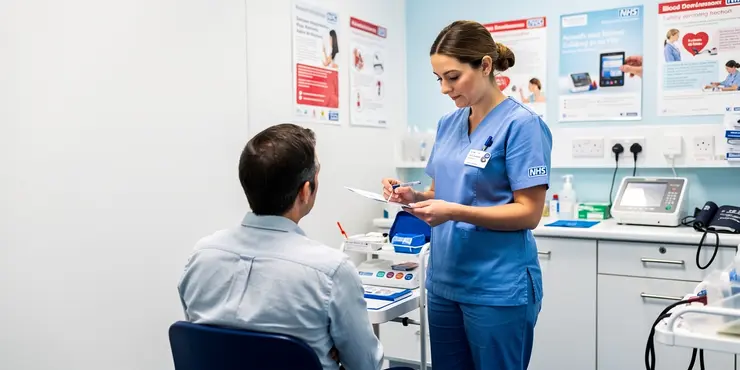
What measures are taken to prevent disease transmission in blood transfusions?
Relevance: 16%
-
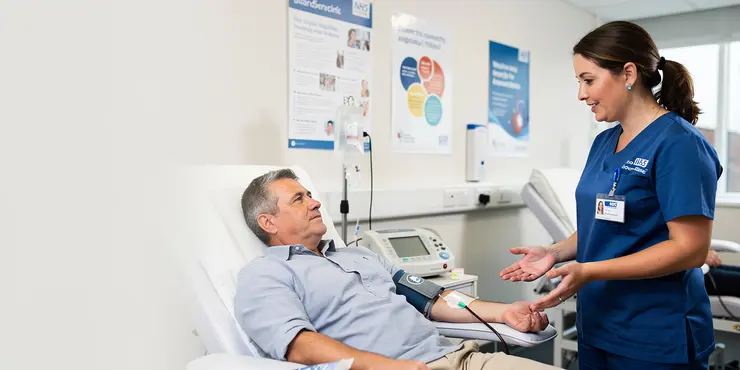
Are there any parasites that can be transmitted through blood transfusions?
Relevance: 16%
-

Can an LPA be changed or revoked?
Relevance: 16%
-

Kidney transplant waiting stories – DJ Ace and Lauren | NHS Organ Donation
Relevance: 16%
-

What are the types of Lasting Power of Attorney (LPA)?
Relevance: 16%
-
Why is blood donation history important in preventing disease transmission?
Relevance: 15%
-

Is HTLV a risk in blood transfusions?
Relevance: 15%
-
Can Dengue fever be transmitted through blood transfusions?
Relevance: 15%
-

Having a kidney transplant
Relevance: 15%
-
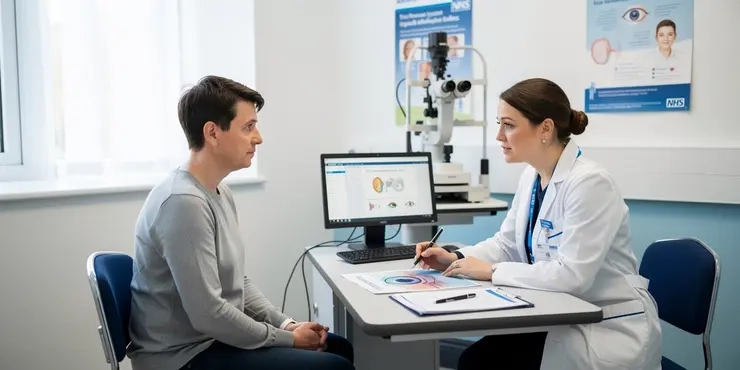
Cornea transplant patient Information
Relevance: 15%
-

What is the '7-year rule' in Inheritance Tax?
Relevance: 15%
-
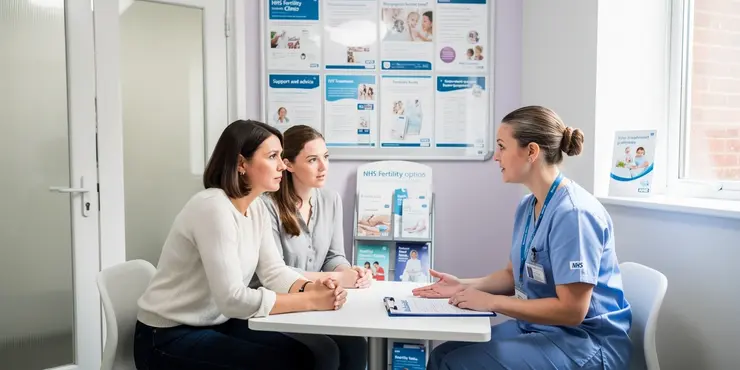
Fertility treatments on the up, but not via the NHS
Relevance: 15%
Introduction to IVF with Donor Eggs or Sperm
In vitro fertilisation (IVF) is a fertility treatment where eggs and sperm are combined outside the body to create embryos, which are then transferred to the uterus. For many couples and individuals in the UK, IVF with donor eggs or sperm can offer a pathway to parenthood when facing infertility challenges. This method is particularly beneficial for those who have specific medical or genetic considerations.
Why Use Donor Eggs or Sperm?
There are several reasons why donor eggs or sperm might be used during IVF. Some women may experience premature ovarian failure or have a low ovarian reserve, which makes using their own eggs challenging. In such cases, donor eggs can provide a viable option. Similarly, some men may have low sperm count or poor sperm quality, making conception difficult without assistance. Donor sperm can help overcome these issues. Additionally, same-sex couples or single individuals may require donor gametes to conceive.
The IVF Process with Donor Eggs
The IVF process with donor eggs involves a few distinct steps. Initially, the donor undergoes ovarian stimulation to produce multiple eggs. Once retrieved, these eggs are fertilized in the laboratory using sperm from the intended father or a sperm donor. The resulting embryos are cultured for several days, typically until they reach the blastocyst stage. After this, a selected embryo is transferred to the uterus of the intended mother or a gestational surrogate.
The IVF Process with Donor Sperm
When donor sperm is used, the process begins with the selection of an appropriate sperm donor. The sperm is then used to fertilize the eggs retrieved from the intended mother. As with donor egg IVF, the embryos are grown in the laboratory and an embryo is selected for transfer based on its quality and development. The goal is to achieve a successful implantation and pregnancy.
Legal and Ethical Considerations in the UK
In the UK, the use of donor eggs or sperm in IVF is regulated by the Human Fertilisation and Embryology Authority (HFEA). Donors must provide their consent, and recipients must be counseled about the implications of using donor gametes. Donors remain anonymous to the recipient parents, but children born from donation have the right to access identifiable information about their donors once they turn 18. This transparency promotes ethical practices while respecting the rights of all parties involved.
Conclusion
IVF using donor eggs or sperm offers a powerful solution for many dealing with infertility or reproductive challenges in the UK. With comprehensive regulation and advanced medical techniques, this option opens doors to those dreaming of starting or expanding their families. As always, potential recipients should seek thorough counseling and expert guidance to navigate their journey towards parenthood.
Introduction to IVF with Donor Eggs or Sperm
In vitro fertilisation, or IVF, is a special way to help make babies. It happens when eggs and sperm are put together outside the body to make tiny babies called embryos. These embryos are then placed in a woman's womb. In the UK, using donor eggs or sperm through IVF can help people become parents when they have trouble having babies on their own. This is really helpful for people with certain health issues.
Why Use Donor Eggs or Sperm?
Sometimes doctors use donor eggs or sperm during IVF for a few reasons. Some women may not have many eggs or have eggs that don't work well. Donor eggs can help these women become moms. Some men might have very few sperm, or their sperm might not work well, so they need donor sperm to help make a baby. Also, some single people or people in same-sex couples might need donor eggs or sperm to have children.
The IVF Process with Donor Eggs
When using donor eggs in IVF, there are a few steps. First, the woman who donates the eggs takes medicine to make her produce a lot of eggs. These eggs are then collected and mixed with sperm in a lab. The tiny babies, or embryos, grow for a few days. Then, the best embryo is put into the womb of the mom who wants to have the baby, or sometimes into another woman's womb who will carry the baby for them.
The IVF Process with Donor Sperm
Using donor sperm starts with choosing the right sperm donor. The donor sperm is used to mix with the eggs from the woman who wants the baby. Just like with donor egg IVF, the best little embryo is chosen and put into the mom's womb. The hope is that the baby will grow and be born healthy.
Legal and Ethical Considerations in the UK
In the UK, there are rules for using donor eggs or sperm in IVF, made by the Human Fertilisation and Embryology Authority (HFEA). People donating eggs or sperm must agree to it, and those receiving must learn about what this means. Donor names are kept secret, but children born this way can find out who the donor was when they turn 18 years old. This is to make sure everyone is treated fairly and kindly.
Conclusion
Using donor eggs or sperm in IVF is a great way for people in the UK to have babies when it's hard for them. With good rules and smart doctors, this helps people start families. Anyone thinking about IVF with donors should talk to experts and get good advice to help them on their journey to becoming parents.
Frequently Asked Questions
What is IVF with donor eggs?
IVF with donor eggs involves using eggs from a donor to fertilize with sperm in a lab setting, with the resulting embryos transferred to the recipient's uterus.
What is IVF with donor sperm?
IVF with donor sperm involves using sperm from a donor to fertilize the recipient's eggs or donor eggs in a lab setting, with the resulting embryos transferred to the recipient's uterus.
Who might consider IVF with donor eggs?
Individuals or couples may consider IVF with donor eggs if the intended mother has poor-quality eggs, premature ovarian failure, or genetic concerns.
Who might consider IVF with donor sperm?
Couples or individuals may use donor sperm if the male partner has infertility issues, the couple is in a same-sex relationship, or a single woman wants to conceive.
How are donor eggs obtained for IVF?
Donor eggs are obtained from a healthy donor who undergoes an ovarian stimulation process to produce multiple eggs, which are then retrieved for fertilization.
How is donor sperm obtained for IVF?
Donor sperm is typically obtained from a sperm bank, where it is collected, screened, and frozen until it is needed for fertilization.
What are the success rates of IVF with donor eggs?
Success rates for IVF with donor eggs tend to be higher than with own eggs due to the typically younger and healthier eggs from donors.
What are the legal considerations with using donor eggs or sperm?
Legal considerations may include anonymity agreements, custody rights, and the donor's relinquishment of parental rights.
Is the donor compensated for their eggs or sperm?
Yes, most donors receive compensation for their time, effort, and the medical procedures involved in donating eggs or sperm.
Can donor eggs or sperm be used for genetic testing?
Yes, embryos created with donor eggs or sperm can undergo genetic testing for chromosomal abnormalities or genetic disorders.
Are donor eggs always fresh, or can they be frozen?
Donor eggs can be used fresh or frozen, with both methods having their own advantages and considerations.
How do you select an egg or sperm donor?
Selection is based on various criteria such as genetic background, physical characteristics, medical history, and sometimes personal preferences.
What is involved in the preparation for IVF with donor eggs?
The recipient typically undergoes hormonal treatments to prepare the uterus for embryo implantation, while the donor undergoes ovarian stimulation.
Does IVF with donor sperm differ from traditional IVF?
The primary difference is the origin of the sperm, but the fertilization process in the lab and embryo transfer remain similar.
Can same-sex couples use IVF with donor eggs or sperm?
Yes, same-sex couples can use donor eggs or sperm to conceive through IVF, with one partner typically carrying the pregnancy.
What are the ethical concerns with using donor eggs or sperm?
Ethical concerns may include issues of anonymity, consent, and the potential future contact with the donor.
Is counseling recommended when using donor eggs or sperm for IVF?
Yes, counseling is often recommended to address emotional and psychological considerations for the intended parents and any children conceived.
How long does the IVF process take with donor eggs or sperm?
The IVF process can take several weeks to months, depending on synchronization between the donor and recipient or specific treatment protocols.
What are the risks associated with IVF using donor eggs or sperm?
As with any medical procedure, there are risks such as ovarian hyperstimulation (for egg donors) and multiple pregnancies, along with potential emotional impacts.
Can the donor remain anonymous in the IVF process?
Anonymity depends on regional laws and the policies of the fertility clinic or sperm bank, although some opt for open donations for potential future contact.
What is IVF with donor eggs?
IVF with donor eggs is when a woman uses eggs from another woman to have a baby. This can help if she has trouble using her own eggs. Doctors take the donor's eggs and mix them with sperm to make a baby.
Tools that might help:
- You can use pictures to understand better.
- Ask someone you trust to explain it to you.
IVF with donor eggs means using eggs from another person. The eggs are mixed with sperm in a lab to make embryos. Then, the embryos are put into the person's body who wants to have a baby.
Here are some tools and tips to help you understand:
- Ask your doctor to explain it step by step.
- Use simple drawings or videos to see how it works.
- Talk with someone who has been through it before.
What is IVF with donor sperm?
IVF means helping a woman have a baby with a special doctor process.
Donor sperm is when a man gives his sperm to help make a baby.
IVF with donor sperm means using this sperm and the doctor process to help a woman have a baby.
Tools that can help: pictures and videos showing how IVF works.
Tip: Ask your doctor or a nurse if you have questions. They can help you understand.
IVF with donor sperm is when a special kind of sperm from someone else is used to help make a baby. The sperm meets an egg in a lab, and together they make a tiny baby starting point called an embryo. This embryo is put into the person who wants to have the baby.
Who might use IVF with donor eggs?
Here is some easy information about who might choose IVF with donor eggs:
- Women who can't use their own eggs can try this.
- If a woman's eggs are not healthy, she might choose this.
- Women who have had treatments that hurt their eggs, like cancer treatment, might need donor eggs.
- Older women might use younger eggs to have a baby.
For help, you can:
- Ask a doctor to explain more.
- Use picture books about IVF.
- Listen to stories from people who used donor eggs.
People or couples might think about using IVF with donor eggs if the woman's eggs are not healthy, her ovaries stop working early, or there are worries about passing on genetic problems.
Who might use IVF with donor sperm?
People might use donor sperm if a man cannot have children, if two women want to have a baby together, or if a woman wants to have a baby by herself.
How do doctors get eggs from a donor for IVF?
Doctors need special eggs to help make a baby with IVF. This is how they get the eggs from a donor:
1. The donor takes medicine to help her make more eggs.
2. Doctors check how the eggs are growing with special pictures.
3. When the eggs are ready, the doctor takes them out using a tiny surgery.
Here are some helpful tools:
- Ask a friend or family member to read with you.
- Use text-to-speech software to listen to the words.
- Look at pictures or videos about how IVF works.
Donor eggs come from a healthy woman. She takes medicine to help her make more eggs. Then, doctors collect the eggs to use them for fertilization.
Tools to help: A parent or friend can read with you. Use pictures to understand the process better.
How do we get donor sperm for IVF treatment?
When people need help to have a baby, they might use donor sperm. Donor sperm is sperm from a man who wants to help others have a baby.
Here is how donor sperm is collected:
1. Men who want to donate go to a special clinic.
2. The clinic checks the health of the donor to make sure the sperm is safe.
3. After the check, the donor gives a sample of his sperm.
4. The clinic freezes the sperm to keep it safe until it is needed.
If someone needs donor sperm for IVF, the clinic will use the frozen sperm. IVF is a way to help make a baby by putting sperm and an egg together outside the body.
If you want to know more or need help, ask a doctor or visit a clinic. They can give you more information and support.
Tools like pictures or videos can also help understand this process better. You can ask for them if you need to.
Donor sperm comes from a special place called a sperm bank. At the sperm bank, the sperm is collected, checked to make sure it is good, and then frozen until someone needs it to help make a baby.
How often does IVF work when using donor eggs?
Using donor eggs for IVF usually works better than using your own eggs. This is because donor eggs come from younger and healthier women.
What legal things should you think about when using donor eggs or sperm?
There are some important things to think about in the law, like:
- Keeping names secret with an anonymity agreement.
- Who takes care of the child, called custody rights.
- The donor giving up their rights as a parent.
If this is hard to understand, you can:
- Use a dictionary to learn new words.
- Ask someone you trust to explain it to you.
- Draw a picture to help you understand.
Do you get paid for giving eggs or sperm?
Yes, most people who give their eggs or sperm get money. They get paid for their time, effort, and the medical steps they go through to donate.
Can doctors check donor eggs or sperm for health problems?
Yes, we can do genetic tests on embryos made with donor eggs or sperm. These tests check for problems in chromosomes or genes.
Can donor eggs be fresh, or are they sometimes frozen?
Donor eggs can be fresh or frozen. Some people use fresh eggs from a donor. Others use frozen ones.
If reading is hard, you can ask someone to read with you. Using a ruler under each line can help you read one line at a time.
You can use donor eggs in two ways: fresh or frozen. Both ways have good points and things to think about.
How do you choose an egg or sperm donor?
Choosing an egg or sperm donor means picking someone to help make a baby. Here is how you can do it:
- Talk to a doctor: A doctor can explain how it works and what to think about.
- Use a donor company: These companies have lists of donors. You can see their pictures and learn about them.
- Think about traits: Decide what is important to you, like hair color, eye color, or hobbies.
- Ask for help: Talk to family, friends, or a support group. They can give advice.
- Use easy tools: Some websites and apps make choosing easier with simple steps.
Take your time and ask for support if you need it.
When we choose something, we look at different things. These include things like family history, how someone looks, their health history, and sometimes what they like.
Here are some tips to help understand better:
- Use pictures to help explain.
- Break information into small parts.
- Read with someone who can help.
How do you get ready for IVF using donor eggs?
The person getting the embryo takes special medicines. These medicines help the belly get ready for the tiny baby egg to go in. The person giving the eggs takes different medicines. These help make more eggs in their body.
Is IVF with donor sperm different from regular IVF?
IVF means making a baby with help from doctors. Regular IVF uses a man’s and a woman’s own sperm and egg. But with donor sperm IVF, the sperm comes from another man, not the dad.
Tools to help: You can use picture cards or videos to understand how IVF works.
The main difference is where the sperm comes from, but making a baby in the lab and moving the baby cell to the mom are mostly the same.
Can couples who are the same sex have a baby using IVF with donated eggs or sperm?
Yes, couples who are the same sex can have a baby using IVF. They can use eggs or sperm from a donor. IVF is a special way to help people have babies. It can help two mums or two dads start a family.
Here are some tools and tips:
- Talk to a doctor to learn how IVF works.
- Look for books or videos that explain IVF in simple words.
- Ask someone you trust to help you understand.
Yes, same-sex couples can have a baby. They can use a donor's eggs or sperm. They use a special process called IVF to help them. Usually, one partner will carry the baby in their tummy.
What are the worries about using donor eggs or sperm?
Using donor eggs or sperm means using a man's sperm or a woman's egg that is not from the people who want to have a baby.
There are some things people worry about when using donor eggs or sperm:
- Who is the real parent? Some people might wonder if the donors are the real parents or if the people who raise the child are.
- Should the child know? People might think about whether the child should be told about the donor when they grow up.
- Is it fair to everyone? It’s important to think if everyone, including the child and the donor, feels good about their choice.
Here are some tips to help with these worries:
- Talk about it: Families can talk together about how they feel.
- Ask for help: Some people talk to a counselor or therapist who helps families.
- Read and learn: There are books and websites that can help explain things better.
Ethical concerns are the things we should think about to make sure we are doing the right thing. Some things we might think about are:
- Keeping people's names and details secret. This is called anonymity.
- Making sure people say "yes" before we do something. This is called giving consent.
- Thinking about if we might talk to the donor again in the future.
It is important to respect people's privacy and choices. Sometimes using pictures or easy-to-read guides can help understand these ideas.
Should you talk to a counselor before using donor eggs or sperm for IVF?
Yes, talking to a counselor can help parents and children with their feelings and thoughts.
How long does IVF take with donor eggs or sperm?
IVF with donor eggs or sperm can take some time. Here’s how it works:
- Starting: The process begins with planning and tests. This can take a few weeks.
- Donor: Choosing and preparing the donor might take 1 to 2 months.
- Cycle: The IVF cycle itself takes about 4 to 6 weeks.
- After: There’s a waiting period for results, about 2 weeks.
In total, it can take a few months. Some tools and techniques to help you understand and remember this are:
- Use a calendar: Mark important dates and steps.
- Charts and graphs: Visual aids can help show the process clearly.
- Ask questions: Don’t hesitate to ask your doctor or nurse to explain things in simple words.
Remember, everyone is different, so times can vary. Take it step by step!
The IVF process can take a few weeks or even a few months. This depends on how well the donor and recipient's schedules match up or the special treatment plan they are using.
What risks come with IVF using donor eggs or sperm?
IVF stands for In Vitro Fertilization. This is when a doctor helps a woman become pregnant.
Sometimes, an egg or sperm from someone else is used. Here are some risks:
- Health Risks: The woman may feel sick from the medicine. She might get swelling or pain.
- Multiple Births: There might be more than one baby, like twins or triplets.
- Emotional Feelings: Some people might feel worried or sad about using a donor.
It can help to talk to a doctor or counselor. They can give support and information.
Just like when you go to the doctor, there can be some problems. If someone donates eggs, their ovaries might get too big. Sometimes more than one baby can grow at the same time. This can make people feel a lot of different emotions too.
Can the donor stay secret in IVF?
Being anonymous can be different in each place. It depends on local laws and the rules of the clinic or sperm bank. Some places let you choose to be open and meet in the future.
Useful Links
This website offers general information and is not a substitute for professional advice.
Always seek guidance from qualified professionals.
If you have any medical concerns or need urgent help, contact a healthcare professional or emergency services immediately.
Some of this content was generated with AI assistance. We’ve done our best to keep it accurate, helpful, and human-friendly.
- Ergsy carfully checks the information in the videos we provide here.
- Videos shown by Youtube after a video has completed, have NOT been reviewed by ERGSY.
- To view, click the arrow in centre of video.
- Most of the videos you find here will have subtitles and/or closed captions available.
- You may need to turn these on, and choose your preferred language.
- Go to the video you'd like to watch.
- If closed captions (CC) are available, settings will be visible on the bottom right of the video player.
- To turn on Captions, click settings .
- To turn off Captions, click settings again.
More Items From Ergsy search
-

Can IVF be done with donor eggs or sperm?
Relevance: 100%
-

How is the sperm used in IVF?
Relevance: 63%
-

What is IVF and how does it work?
Relevance: 46%
-

Who might need IVF?
Relevance: 45%
-

What should I expect during IVF treatment?
Relevance: 43%
-

What is IVF?
Relevance: 41%
-

What is the role of the embryologist in IVF?
Relevance: 40%
-

Infertility - IVF Treatment and Patient Information
Relevance: 40%
-

What are the main steps in an IVF cycle?
Relevance: 40%
-

IVF Fertility Treatment from MumsNet
Relevance: 37%
-

How does IVF work?
Relevance: 37%
-

Is IVF successful?
Relevance: 36%
-

Does IVF guarantee pregnancy?
Relevance: 35%
-

Are there risks associated with IVF?
Relevance: 34%
-

How long does an IVF cycle take?
Relevance: 33%
-

What is egg retrieval?
Relevance: 30%
-

Does IVF require anesthesia?
Relevance: 30%
-

How do clinics determine if IVF is the right option?
Relevance: 28%
-

Can IVF be used for gender selection?
Relevance: 25%
-
Is there a universal blood donor type?
Relevance: 25%
-

How are embryos transferred during IVF?
Relevance: 25%
-

How many embryos are usually transferred in IVF?
Relevance: 21%
-

How to apply for NHS funding to treat infertility
Relevance: 20%
-

What decisions can an attorney make under a Property and Financial Affairs Lasting Power Attorney?
Relevance: 18%
-

What powers does an attorney have in a Health and Welfare LPA?
Relevance: 18%
-

What are the restrictions on attorneys under an LPA?
Relevance: 18%
-

What if I have an egg allergy, can I still get the flu vaccine?
Relevance: 17%
-

When does a Lasting Power of Attorney (LPA) come into effect?
Relevance: 17%
-

What measures are taken to prevent disease transmission in blood transfusions?
Relevance: 16%
-

Are there any parasites that can be transmitted through blood transfusions?
Relevance: 16%
-

Can an LPA be changed or revoked?
Relevance: 16%
-

Kidney transplant waiting stories – DJ Ace and Lauren | NHS Organ Donation
Relevance: 16%
-

What are the types of Lasting Power of Attorney (LPA)?
Relevance: 16%
-
Why is blood donation history important in preventing disease transmission?
Relevance: 15%
-

Is HTLV a risk in blood transfusions?
Relevance: 15%
-
Can Dengue fever be transmitted through blood transfusions?
Relevance: 15%
-

Having a kidney transplant
Relevance: 15%
-

Cornea transplant patient Information
Relevance: 15%
-

What is the '7-year rule' in Inheritance Tax?
Relevance: 15%
-

Fertility treatments on the up, but not via the NHS
Relevance: 15%


